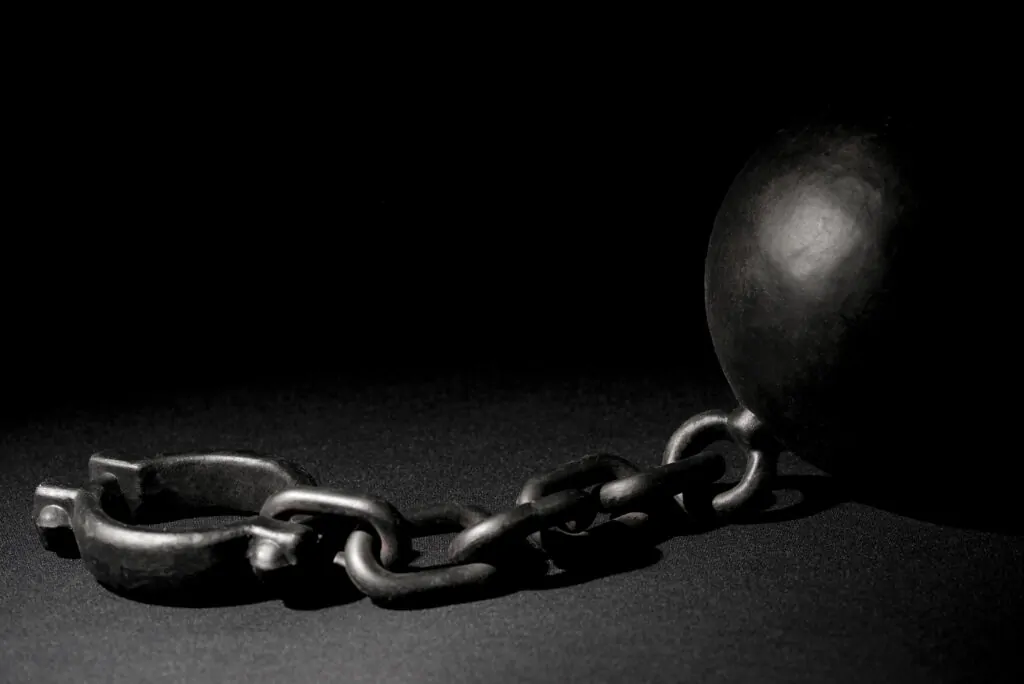On 11 July 2012 two members of a traveller family were jailed for 11 and 4 years respectively after being found guilty of brutally manipulating and exploiting destitute men for financial gain at a caravan site near Leighton Buzzard.
Judge Michael Kay QC at Luton Crown Court said:
In 1834, slavery was abolished in the British Empire. So it is that nearly 200 years after that these defendants have been convicted of holding their fellow human beings in servitude and exacting from them forced labour.
Such cases are so rare that they make news. The trade in human beings, mostly African, which existed in the British Empire for several centuries, was ended by law. Its destruction is a corrective to cynicism about the power of the law to do good. After a long campaign in the second half of the 18th and early 19th centuries, led by such men as Thomas Clarkson, Granville Sharp and William Wilberforce, slavery was abolished by the Slavery Abolition Act 1833. Arguably, our most lucrative export industry was destroyed simply by the force of moral persuasion.
I was recently reminded of the early abolitionist struggle when I read an obituary of the novelist Barry Unsworth. In 1992 his novel “Sacred Cargo” won the Booker Prize. Its theme was the “triangular trade”,which made the ports of Liverpool and Bristol prosperous. The slave ships carried cheap goods from British ports to Africa, where they were exchanged for the manacled victims,who were then transported across the Atlantic to be sold to the highest bidder. For the rest of their lives their back-breaking labour in the sugar fields of the New World sweetened the tea cups of the British merchants who had sent them there.
I learned that Unsworth in 2011 had published a sequel to “Sacred Hunger” – entitled “the Quality of Mercy” – ,which imaginatively reconstructs the efforts of the anti-slavery campaigners, particularly Granville Sharp. Much of his activity took place in the courts in London, where Lord Mansfield presided as Lord Chief Justice of the King’s Bench from 1756 to 1783. In the 1760s Sharp made several habeas corpus applications on behalf of runaway slaves threatened with forcible return to their masters.
Sharp was a member of a celebrated family of musicians – they were the first to play Handel’s Water Music, as they followed the royal barge in a river procession. That made him a popular figure and Mansfield treated him seriously.
On the issue of slavery Mansfield was ambivalent. His household included Elisabeth Dido Lindsay, daughter of Mansfield’s nephew Sir John Lindsay with a black slave mother. In his will, he left her both money and her freedom. Yet Mansfield was a commercial lawyer, respectful of property rights. His awareness of the economic importance of slavery made him reluctant to interfere with the long established trade. He wanted to avoid deciding whether a slave’s humanity prevailed over his legal status as a chattel. “I don’t know what the consequences may be” he said “ if the masters were to lose their property by accidentally bringing their slaves to England. I hope it will never be finally discussed… “
Yet the issue kept confronting him. In 1772, Sharp took up the case of the runaway slave James Somersett, brought to England by his master from Virginia. Sharp applied for habeas corpus to stop the master from taking Somersett back to Virginia. Mansfield made a bold ruling. He said:
No master ever was allowed here to take a slave by force to be sold abroad because he deserted from his service, or for any other reason whatever – therefore the man must be discharged.
This strong language – sometimes paraphrased as “let the black go free” , which Mansfield did not say – caused rejoicing among those who sought the abolition of slavery, but they were over-optimistic. Mansfield was acknowledging that Somersett had the right not to be expelled from Britain – this was long before the days of immigration control – but he was in no way inclined to dispute the concept of slave ownership.
The most shocking of all the slave cases occurred in 1783. Sharp received an account of about 130 Negroes being thrown alive into the sea, from on board an English slave ship, the Zong, owned by a Liverpool consortium. Sharp rallied public protests demanding the prosecution of those responsible but the case reached Mansfield’s court in a bizarre and very different context.(Gregson v. Gilbert [1783] English Reports 83) The owners claimed that shortage of water forced them to jettison sick slaves to save the lives of the remainder and of the crew. They claimed compensation to the tune of £30 per slave from their insurers, who denied liability on the ground that water supplies were in fact sufficient or, if not, it was the owners’ own fault. The jury found for the owners, assuming that the owners were entitled to kill their own property. Indeed Mansfield,to whose court the insurers appealed,said “they had no doubt (though it shocks one very much) that the case of the slaves was the same as if horses had been thrown overboard.” Mansfield ordered a new trial, but there is no record that any such trial took place. Doubtless a backstairs deal was done to avoid the consequences which Mansfield feared. Nor were Sharp’s demands for murder charges against the perpetrators of the atrocity ever fulfilled.
After Sharp, the devout Christian William Wilberforce took up the abolitionist cause but it was fifty years before the campaign finally succeeded. Those who engage in the the struggle for human rights to-day should not be surprised or daunted at the obstacles which stand in their way. It was ever thus.
Geoffrey Bindman
